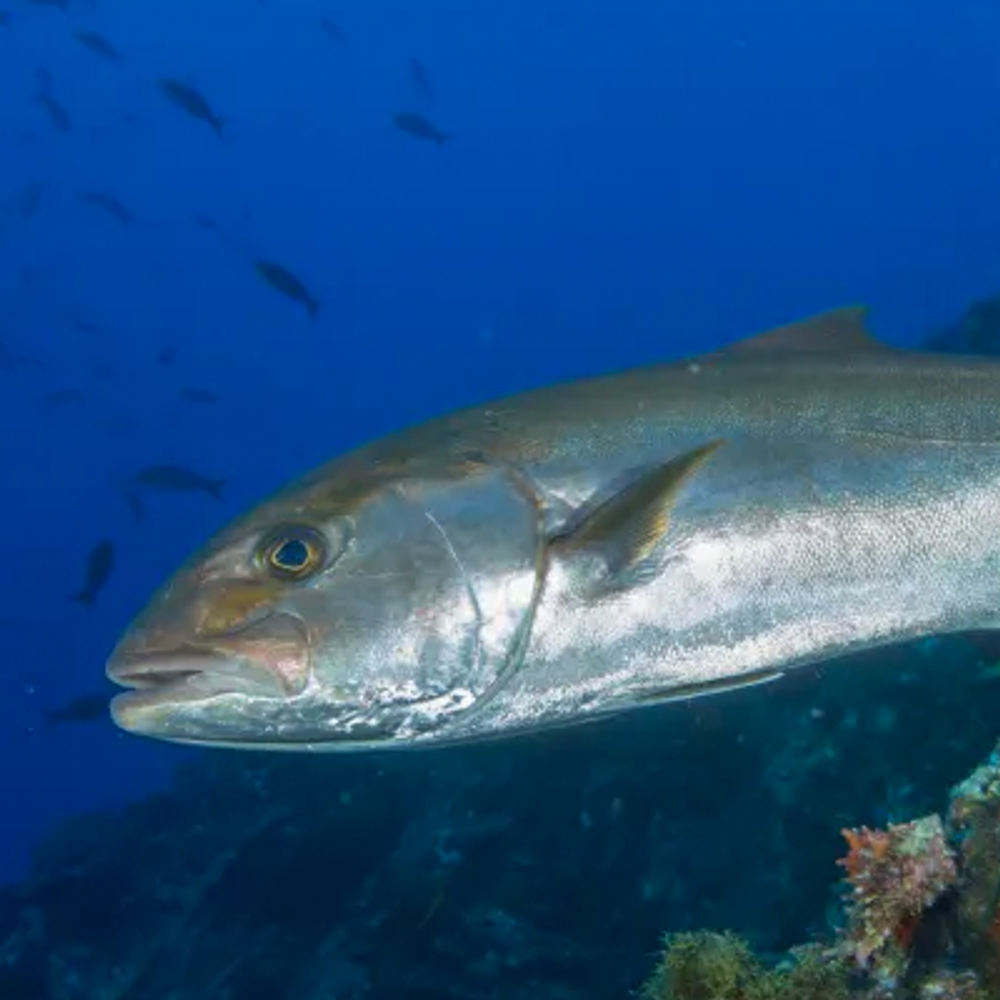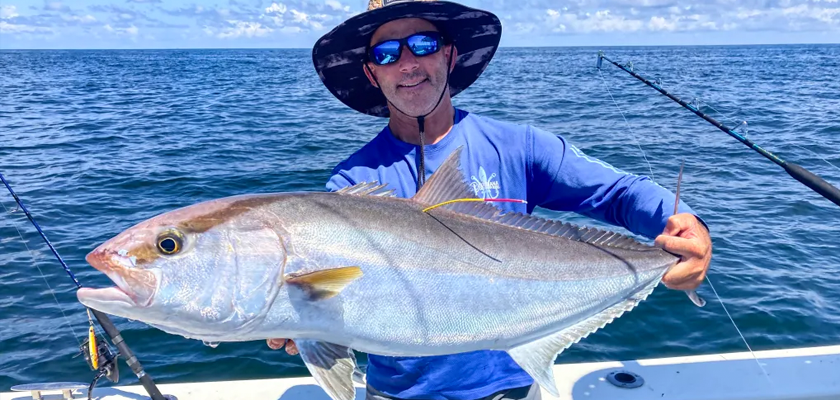Greater amberjack recreational fishing season will reopen later this year in the Gulf of Mexico. Fishermen will have an opportunity to win $250 if they catch one of these saltwater fish.
The University of South Alabama’s Dr. Sean Powers is heading up a team of 18 scientists from 13 institutions, including Auburn University, to study the greater amberjack species.
The $11.7 million study is funded by the National Sea Grant College Program and the National Oceanic and Atmospheric Administration (NOAA) Fisheries. Congress appropriated $5 million each to NOAA Fisheries and $5 million to a grant for the amberjack study. The rest of the funding comes from matching funds from institutions.
The study is intended to estimate the number of greater amberjack in the Gulf. It might help officials understand the disparity between greater amberjack populations in the Gulf and the U.S. South Atlantic.
According to NOAA Fisheries, greater amberjack in the Gulf are overfished, despite a rebuilding effort that has lasted decades. Greater amberjack in the U.S. South Atlantic, on the other hand, are not overfished.
Scientists have already synthesized existing greater amberjack sightings and catch data from multiple datasets and will begin wide-scale tagging this summer.
Some 450 amberjacks will be tagged with acoustic tags, and 750 will be tagged with conventional tags.
The acoustic tags will be surgically implanted inside a fish’s body cavity and emit signals unique to each fish. Conventional tags are applied externally and resemble colorful streamers. They are designed for high visibility. All acoustically tagged amberjack will be tagged with at least one conventional tag.
Conventional tags will be placed beneath each fish’s dorsal fin. They will have a yellow coating close to the fish’s body. This tag will have five digits, instructions to clip the tag for a $250 reward, a phone number and a reprinted tag number.

In order to receive their reward, fishermen who catch a tagged greater amberjack must call the telephone number printed on the tag to report the catch to the Greater Amberjack Count project team using the digits printed on the tag.
Fishermen will also be asked to provide other information such as the fishing sector, latitude and longitude where the fish was caught as well as the fish’s length and weight and the date. The physical tag must be mailed in order to claim the reward, so fishermen should clip the tag off and save it, even if they release the fish.
If a fish is double-tagged, fishermen should clip off both tags.
Though the Gulf is currently not in season, the U.S. South Atlantic greater amberjack recreational fishing season is currently open. Even in the Gulf, fishermen who incidentally catch tagged greater amberjack can still receive a reward before the season begins. However, the fish must be released.
To connect with the author of this story, or to comment, email will.blakely@1819news.com.
Don’t miss out! Subscribe to our newsletter and get our top stories every weekday morning.










